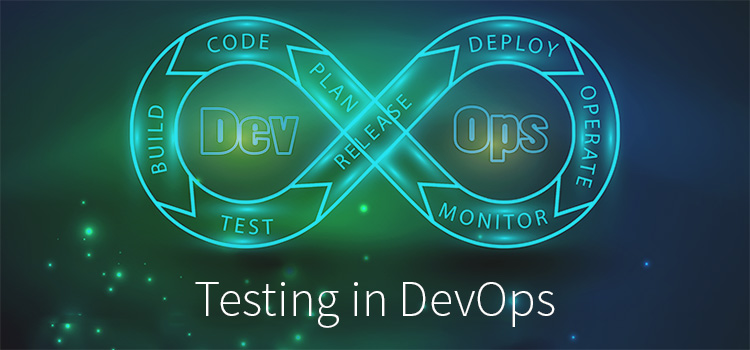DevOps has emerged as a powerful approach in software development to streamline collaboration between development and operations teams, enabling faster and more efficient software delivery. To ensure the quality and stability of software products, robust testing practices must be integrated into the DevOps process. A well-defined DevOps testing strategy ensures software product quality, reliability, and timely delivery. By embracing DevOps testing tools, organizations can minimize risks, foster collaboration, accelerate release cycles, and deliver software that meets customer expectations.
By adopting DevOps practices, organizations can achieve higher productivity, greater agility, and software excellence, ultimately driving business success in today’s fast-paced technological landscape.
DevOps Testing Strategy: Embracing Test Automation and Continuous Testing
Within a DevOps framework, the DevOps testing strategy revolves around test automation and continuous testing, focusing on using a DevOps test automation tool.
Automation Testing
Automation testing plays a crucial role in the DevOps testing strategy, but it’s essential to approach it correctly. Instead of aiming to automate everything, the focus should be on simplifying complex manual testing processes.
Here are some areas where automation can effectively replace manual testing in a DevOps context:
- Software Testing: Automate simple unit, regression, and end-to-end tests for efficient and reliable results.
- Infrastructure Management: Automate repetitive setups and configurations, simplifying IT infrastructure maintenance.
- Log Management: Handle large volumes of data using automated logging tools, including application requests and error messages.
- Monitoring: Accurately and quickly monitor the system’s health and performance trends throughout all testing operations.
Continuous Testing
It is an essential component of a DevOps testing strategy, ensuring seamless testing integration throughout the development and deployment processes. It plays four key roles in driving automation and enhancing testing strategies within a DevOps environment:
- Continuous Integration (CI): Utilize DevOps testing tools to integrate and merge code changes into a central repository. Automate the compilation process to generate builds for testing.
- Continuous Testing: In a DevOps testing strategy, continuous testing involves identifying bugs or potential issues by validating code and product quality throughout development. It is achieved through the automated unit, integration, and end-to-end tests that assess the software build’s functionality, performance, and compatibility.
- Continuous Delivery (CD): With DevOps testing tools, enable the manual selection of qualified release products when moving code submissions to the staging environment. It ensures the code meets the quality criteria before progressing to the next stage.
- Continuous Deployment (CD): Automate the deployment of successful builds to the production environment, utilizing end-to-end tests to guarantee that no regressions remain and the system functions as expected.
Benefits of a DevOps Testing Strategy
A well-defined DevOps testing strategy offers numerous benefits to software development teams and organizations, including:
- Faster Time-to-Market: A DevOps testing strategy enables faster time-to-market by incorporating testing early in the development process and automating testing activities. It reduces manual effort, facilitates quicker identification and resolution of issues, and streamlines the software delivery process.
- Improved Software Quality: DevOps testing tools ensure a higher level of software quality by identifying bugs, defects, and issues throughout the development cycle. It leads to the delivery of reliable, stable, and high-performing software.
- Early Bug Detection: DevOps in testing emphasizes early bug detection, allowing teams to identify and fix issues in the early stages of development. It reduces the risk of costly bug fixes and delays later in the cycle, leading to efficient development and deployment.
- Increased Test Coverage: A DevOps testing strategy focuses on achieving comprehensive test coverage, including unit testing, integration testing, functional testing, performance testing, and security testing. It ensures that all aspects of the software are thoroughly tested, minimizing the possibility of undetected issues in production.
- Enhanced Collaboration and Communication: DevOps testing tools promote collaboration and communication among cross-functional teams, including developers, testers, operations, and stakeholders. It fosters shared responsibility, knowledge sharing, and effective problem-solving, leading to better alignment, efficiency, and overall project success.
Enhance Your DevOps Testing Strategy with HCLSoftware DevOps Suite
HCLSoftware DevOps offers a comprehensive suite of products designed to empower organizations in complex and regulated industries to elevate their DevOps practices. This portfolio equips businesses with various capabilities, including continuous delivery, automated testing, and security scanning. With the HCLSoftware DevOps test automation tool, organizations can accelerate their software development and delivery processes while ensuring compliance, security, and quality at every step.
HCLSoftware’s DevOps solutions are strategically designed to address the evolving landscape of DevOps. Our approach encompasses DevOps’s full cycle and scope, catering to development teams, IT departments, and business units. You can have confidence and peace of mind, knowing you can access the necessary DevOps testing tools and expertise from industry-leading DevOps professionals to drive success.
At the forefront of DevOps innovation, our solutions enable businesses to achieve unparalleled agility:
- Manage Risk & Governance: With HCLSoftware DevOps, address software lifecycle risks, ensuring security, compliance, and mitigating potential incidents. Gain valuable insights through aggregated KPIs, empowering informed decision-making and strategic business steering.
- Control Cost & Quality: Achieve success with HCLSoftware’s testing portfolio, covering UI, performance, API testing, test data management, and service virtualization. Minimize re-work and defects.
- Generate Flow Through Revenue: HCLSoftware provides cutting-edge Value Stream Management capabilities to identify bottlenecks, manage delivery pipelines, and utilize machine learning for organizational growth.
- Deploy Anything, Anywhere: HCLSoftware DevOps leads the market with its cutting-edge technology in Application Release Automation (ARA). Trusted by numerous Fortune 500 companies, our technology has demonstrated a proven track record spanning over a decade, delivering seamless push-button automation and comprehensive traceability and auditability.
- Cloud Native: HCL Software’s cloud-native strategy offers a flexible technology platform rooted in widely adopted technologies tailored to meet specific business objectives.
Want to learn more about our services? Simply fill out the form, and one of our DevOps experts will contact you with the necessary information. We’re here to assist you every step of the way!

